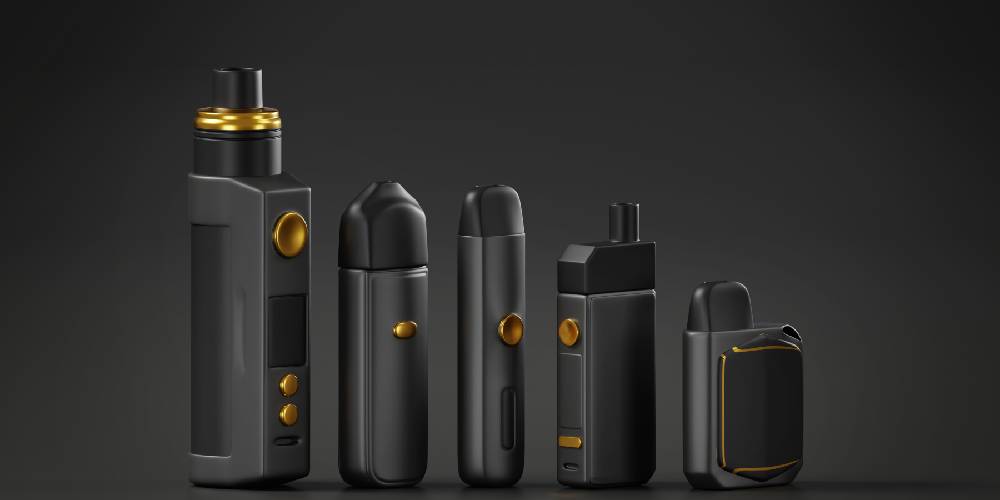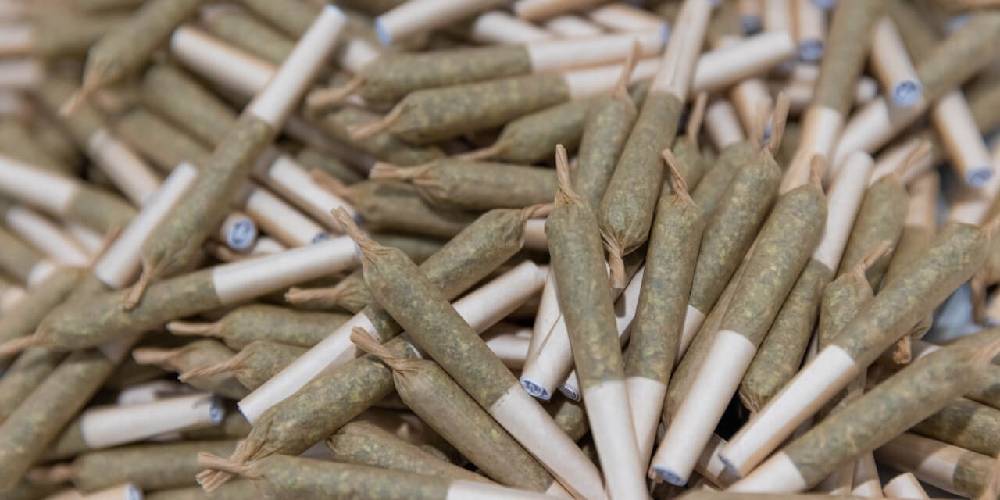If you’ve been browsing Superstrain.com looking to explore the latest hemp-derived options, you’ve likely noticed two stars of the show THCA flower and Delta-8 products. Both are legal, both come from hemp, and both deliver distinct experiences that appeal to different types of consumers. But when it comes down to THCA vs Delta 8, which one actually feels stronger and why?
This guide breaks down everything you need to know before buying. From potency and production to legality, user experience, and real-world comparisons, consider this your ultimate buying companion before adding that next jar of flower or pack of Delta-8 disposables to your cart.
Let’s unpack how each of these cannabinoids behaves and which one delivers the strength and satisfaction you’re after.
Understanding the Cannabis Spectrum
The hemp plant is like a botanical laboratory, it naturally produces dozens of cannabinoids, each with its own chemical structure and characteristics. Some are mild, others potent, and a few (like THCA and Delta-8) sit right in the middle of legality and user preference.
Over the past few years, the hemp marketplace has evolved rapidly. Manufacturers learned how to isolate and refine cannabinoids that produce specific experiences while keeping products compliant under federal law. That’s how compounds like Delta-8 and THCA became household names in hemp retail.
What Exactly Is THCA Flower?
To understand THCA flower, think of it as the raw version of THC. THCA stands for tetrahydrocannabinolic acid, the non-psychoactive precursor of THC. On its own, THCA doesn’t produce effects until it’s heated through smoking, vaping, or dabbing. That process, called decarboxylation, converts THCA into Delta-9 THC, the same compound that gives traditional cannabis its potency.
What makes THCA flower unique is that it’s derived from legal hemp plants. As long as it stays under 0.3% Delta-9 THC before heating, it’s federally compliant. Yet once you light or heat it, the chemistry changes, activating THC and creating a full-strength experience nearly identical to traditional cannabis.
That’s why THCA flower has become one of the fastest-growing product categories on Superstrain.com it bridges the gap between hemp legality and authentic potency.

What Is Delta-8 THC?
Delta-8 THC is another hemp-derived compound, but it’s created differently. Instead of occurring naturally in large amounts, Delta-8 is typically synthesized from CBD extracted from hemp. The process involves converting CBD into Delta-8 through a clean chemical reaction under controlled conditions.
Delta-8 sits between CBD and Delta-9 THC in terms of intensity. Its molecular structure is slightly altered, meaning it binds to the body’s endocannabinoid receptors differently. The result is a smoother, lighter experience that users describe as balanced, clear-headed, and relaxing.
Because Delta-8 products like Delta 8 vapes and edibles deliver a mild and manageable experience, they’ve become a go-to option for people who want a calm sense of satisfaction without overwhelming potency.
The Science: How Each Works in the Body
The human body interacts with cannabinoids through the endocannabinoid system a network of receptors that help regulate mood, appetite, and balance.
When you heat THCA flower, you activate it into Delta-9 THC, which binds strongly to CB1 receptors in the brain. This interaction produces noticeable effects and is often described as intense, uplifting, or euphoric.
Delta-8, on the other hand, also binds to those CB1 receptors but does so less efficiently. Its double-bond placement (at the eighth carbon chain instead of the ninth) weakens its interaction, leading to a more subtle impact.
In short, THCA (once converted) becomes Delta-9, which is naturally stronger, while Delta-8 produces a gentler, more functional vibe.
Potency: The Defining Difference
Potency is where THCA vs Delta 8 truly diverges.
When THCA flower is heated, it becomes Delta-9 THC, the compound responsible for the “classic” strength associated with cannabis. That means once you smoke or vape THCA flower, you’re essentially consuming Delta-9 levels of potency from a hemp-compliant product.
Delta-8, however, is naturally less potent, about 50–70% as strong as Delta-9. This difference comes down to the way each molecule interacts with your ECS receptors. While Delta-8 still provides satisfaction, THCA (after activation) delivers a fuller, more robust experience.
That’s why many users who seek maximum strength gravitate toward THCA flower, while those who prefer mild, balanced sessions choose Delta-8 products for control and clarity.
User Experience: What It Actually Feels Like
Though individual experiences vary, a few general patterns help illustrate how these two cannabinoids differ in practice.
- THCA Flower Experience: Users often describe it as rich and authentic the aroma, flavor, and overall feel closely mimic traditional cannabis. Once heated, THCA flower produces a full-spectrum experience that’s powerful yet smooth. It’s often favored for its robust body presence and uplifting head effects, depending on strain and terpene composition.
- Delta-8 Experience: Delta-8 offers a lighter, more functional experience. Many users say it feels calm and focused without overwhelming intensity. This makes Delta-8 vapes or gummies popular for casual use or social situations where you want composure alongside mild euphoria.
In essence, the difference is intensity. THCA, after activation, packs a punch. Delta-8 delivers balance and manageability.
Lab Testing and Quality Matter
In hemp, purity equals reliability. Since Delta-8 is a lab-converted cannabinoid, it’s crucial to source from transparent brands with published Certificates of Analysis verifying potency, purity, and residual solvent levels.
THCA flower, while grown naturally, also requires testing, especially to confirm that it meets federal compliance before heating. Testing ensures that what’s labeled as “THCA” isn’t already high in Delta-9 THC and that it’s free from pesticides, mold, or contaminants.
At Superstrain.com, both Delta-8 and THCA products undergo strict third-party verification, ensuring what you buy meets federal standards while delivering authentic cannabinoid experiences.
Legal Landscape: THCA vs Delta-8
Legality adds another layer to the conversation.
Both THCA and Delta-8 are federally legal under the 2018 Farm Bill, which legalized hemp and its derivatives containing less than 0.3% Delta-9 THC. However, the story changes after heating.
Once the THCA flower is decarboxylated, its THC content rises above that threshold, creating a gray area depending on state interpretation. Some states regulate THCA strictly, treating it similarly to Delta-9 THC. Others allow its sale as long as the raw material remains compliant before activation.
Delta-8 enjoys broader legality in many states, though a handful have banned or restricted its sale due to its synthetic conversion process. Always check your local hemp laws before ordering.
Consumption Methods and Strength Outcomes
The way you consume each product dramatically influences how strong it feels.
- THCA Flower: Smoking delivers the most immediate activation. Vaping provides better flavor and potency control. Dabbing yields the most intense result since nearly all THCA converts instantly.
- Delta-8 Products: Vapes are fast-acting, mild, and consistent. Edibles have a slower onset but longer duration. Tinctures offer balanced absorption and sustained satisfaction.
Since THCA converts directly to Delta-9 THC when heated, the delivery method dictates how efficient that transformation is. Dabbing or vaping THCA produces maximum activation, whereas Delta-8’s effect stays mild regardless of method.
Tolerance and Personal Preference
No two users experience cannabinoids the same way. Tolerance, body chemistry, and personal goals all affect how strong something feels.
Those with higher tolerance levels often find Delta-8 too mild and lean toward THCA flower for its robust strength. Meanwhile, beginners or casual users may appreciate Delta-8’s approachable balance.
The best approach is to start low, gauge your comfort level, and find what aligns with your desired intensity. Both cannabinoids have their place; it’s all about matching the product to your personal goals.
Safety, Quality, and Brand Reputation
As hemp products exploded in popularity, quality control became more important than ever. Not every brand follows strict lab standards, which is why trusted retailers like Superstrain.com remain essential sources.
When comparing THCA vs Delta 8, always verify the presence of a third-party COA, batch-specific potency results, clear sourcing, and transparent ingredient labeling.
Quality not only influences safety but also determines how strong a product feels. Purely extracted cannabinoids deliver cleaner, more accurate results.
Market Trends: The Rise of THCA Flower
While Delta-8 products were the first major wave in hemp’s evolution, THCA flower is the newest disruptor. It’s quickly becoming the premium choice for consumers who crave authenticity, legal hemp flower that feels just like its dispensary counterpart.
Retailers report growing demand for high-testing THCA strains, particularly those offering indoor-grown buds with aromatic terpene profiles. As a result, brands have begun offering infused pre-rolls, live resin blends, and boutique-grade flower that rival traditional cannabis in every category except federal status.
Delta-8, by contrast, maintains its popularity for accessibility. Its gentle nature appeals to newcomers or daytime users seeking a smooth, balanced option.

Head-to-Head Comparison: THCA vs Delta-8
| Category | THCA Flower | Delta-8 THC |
|---|---|---|
| Strength | Converts to Delta-9 THC for full potency | Roughly 50–70% as strong |
| Experience | Authentic, rich, and aromatic | Light, clear, and smooth |
| Legality | Legal pre-heating; gray area after activation | Federally compliant in most states |
| Consumption | Smoke, vape, or dab | Vape, edible, or tincture |
| Best For | Experienced users or those seeking full potency | Beginners or light sessions |
| Testing Need | Must verify THCA content pre-activation | Must verify purity post-conversion |
Both serve unique audiences, and both have a place in the modern hemp marketplace.
Which Should You Choose?
If your goal is authentic strength that mirrors traditional cannabis, THCA flower is your best choice. Once activated, it offers nearly identical potency while staying hemp-compliant before heating.
If you prefer smooth, manageable balance, Delta-8 may suit your style better — perfect for everyday relaxation without the full intensity.
In short, choose THCA for power, depth, and realism, and choose Delta-8 for calm, control, and clarity.
Whichever path you choose, Superstrain.com carries curated selections of both — ensuring every option meets federal standards, lab purity, and the experience you’re looking for.
Tips Before Buying
-
Read lab reports and verify cannabinoid percentages.
-
Consider your goal — relaxation, intensity, or balance.
-
Start small to understand your tolerance.
-
Check your state’s hemp laws before ordering.
-
Always buy from trusted retailers like Superstrain.com.
By taking a mindful approach, you’ll enjoy a better, more consistent experience — no surprises, no confusion.
Final Thoughts: THCA vs Delta-8 Strength Verdict
When comparing THCA vs Delta 8, the answer is clear: THCA, once heated, converts into Delta-9 THC, making it the stronger option overall. Delta-8 remains an excellent choice for beginners, but it simply can’t match THCA’s post-activation intensity.
Ultimately, your choice depends on what you value most: raw potency or balanced comfort. With today’s evolving hemp market, both options deliver impressive quality and both are readily available at Superstrain.com for secure, compliant purchase.
Choose wisely, read your lab reports, and enjoy discovering what fits your preferences best.
FAQs
Is THCA legal to buy online?
Yes, as long as the THCA content remains below 0.3% Delta-9 THC in its raw form, it’s federally compliant under the 2018 Farm Bill. However, laws differ by state, so always confirm local regulations before ordering.
What makes THCA stronger than Delta-8?
When heated, THCA converts into Delta-9 THC a compound significantly more potent than Delta-8 due to its stronger binding affinity with CB1 receptors.
Can I mix THCA and Delta-8 products?
Yes, many consumers experiment with blending cannabinoids to customize their experience. Always start with small doses to find a comfortable balance.
What’s the best way to store THCA flower?
Keep it in an airtight container away from heat and light to preserve potency, aroma, and freshness.
Where can I buy quality THCA and Delta-8 products?
Visit Superstrain.com, an online marketplace specializing in premium hemp-derived cannabinoids, including THCA flower, Delta-8 disposables, and edibles, all third-party lab-tested for purity and compliance.



